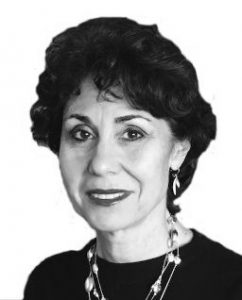By Barb Cohen, Guest Blogger
What If The Lesson to Learn Is That There Is No Lesson?
Hindsight in parenting rarely accounts for the complexity of the moment.
Suppose your child received feedback on her first assignment in college and called to say, “It turns out I was supposed to read the question before I wrote the answer.” Or imagine her discovering that, “When the professor hands you the test, you have to put your notes away immediately, even if you didn’t finish studying last night. Otherwise he thinks you are cheating even if you don’t look at the test!”
How does a child reach college not knowing such things? Worse, how does a mother fail to teach her daughter such things?
My daughter Sam is autistic. She just started her second semester of college. Her first semester was rocky, and the new one is, if anything, off to a rockier start. She spent an extra year in high school, graduating at nineteen. When my husband proposed the extra year, Sam’s IEP team enthusiastically agreed that she was far too immature to move into adulthood with her classmates. I had hoped for some push-back, some insistence that we were underestimating her skills, but the team, to their credit, cared only about Sam; they were not interested in what my ego yearned to hear. The fifth year turned out to be a wise decision, because her brain was ready to develop more quickly than even I had hoped. Her meltdowns diminished in number and intensity; she took a class at a local university; and she found a club, Best Buddies that embraced her.
In the meantime I bought piles of books about preparing your child with autism for college life. Preparing your child with AD/HD for college life. Preparing your child with a learning difference for college life.
The stack still glares at me from the windowsill: “Why did you buy us if you were never going to read us?” the books demand. “I had good intentions,” I plead, “but I could not face another reminder of all the skills I have failed to teach Sam.” Failed because she was not ready, failed because we could not prioritize one more priority, failed because I did not have the stamina or self-discipline, failed because, maybe, I was not ready to let her go.
This essay is not another list of skills to be sure to teach your child (although I do recommend mastering a washing machine). Rather, it is a plea to devalue hindsight. If only I had known then what I know now. . . . When I ask myself what I should and could have done differently, at the end of the day the answer is that I still do not know.
How could competent parents not have taught their child always to read the question before she writes the answer? To take note when a professor passes out an exam? But dozens of teachers, paraprofessionals, tutors, Sam’s father and I did try to teach her. We instructed, reminded, coached, and reviewed endless assignments. We modeled and we told her explicitly. Perhaps, as with so many other things, her executive functioning was simply too underdeveloped at the time to internalize the message.
As Sam grew up, we taught her many skills. We taught her to navigate public transportation alone. We taught her how to explain her autism to teachers and request accommodations. We taught her that the world demands flexibility. We taught her that people sometimes exaggerate or lie, that their thought processes do not mirror hers and they cannot read her mind, that “mixed emotions” is not a bad thing, that nobody is perfect. We taught her that she can survive frustration. Most importantly, we taught her to be proud of her talents. And we taught her to use a washing machine.
However, there are many skills left to learn. Moderating her voice. Eating with her mouth closed. Restraining the impulse to blurt out comments in class. Asking permission before she handles other people’s belongings. Managing her time well. We tried with all of these, but her sensory profile, the need to choose priorities, and my concerns about constantly bashing her self-esteem conspired to leave all of these as works-in-progress (WIP). I expect some skills will forever be WIP.
When Sam left home, I anticipated finally being able to figure out the right way to have parented: Aha, THAT was a mistake! WHOA, never do that again! WHAT could I have been thinking?
Instead, I am learning how to manage the present, a present in which I have almost no control over her mistakes. Or her successes. And Sam has experienced many successes. Surviving and passing first semester, to start. Learning from her professors and her peers for another. Making her home in a new town for a third.

Barb Cohen, Parent, Blogger at Psychology Today’s “Mom, Am I Disabled?” and Education Advocate
I have not learned much, if anything, about reliving the past. Sometimes I think that asking what I should have taught her, what, in hindsight, I should have done differently, does us both a disservice. It’s not just about what I could or should have done. It also seems to imply that she has no right to make mistakes like other college students, no ability to learn and mature on her own with the attendant missteps and embarrassments inherent in that process. Her list of life skills to master may be different than other students’, and it may be longer, and it may take more time. But she can do her own laundry. The rest she will either figure out where she is, or she will reset course and try again. And maybe then again. And again and again. Why should she be expected to make fewer missteps along the way than the rest of us?
Parents do not need another list of skills to be sure we teach our children. We need permission to leave some tasks undone, left for our children to master on their own.







No Comments
No comments yet.